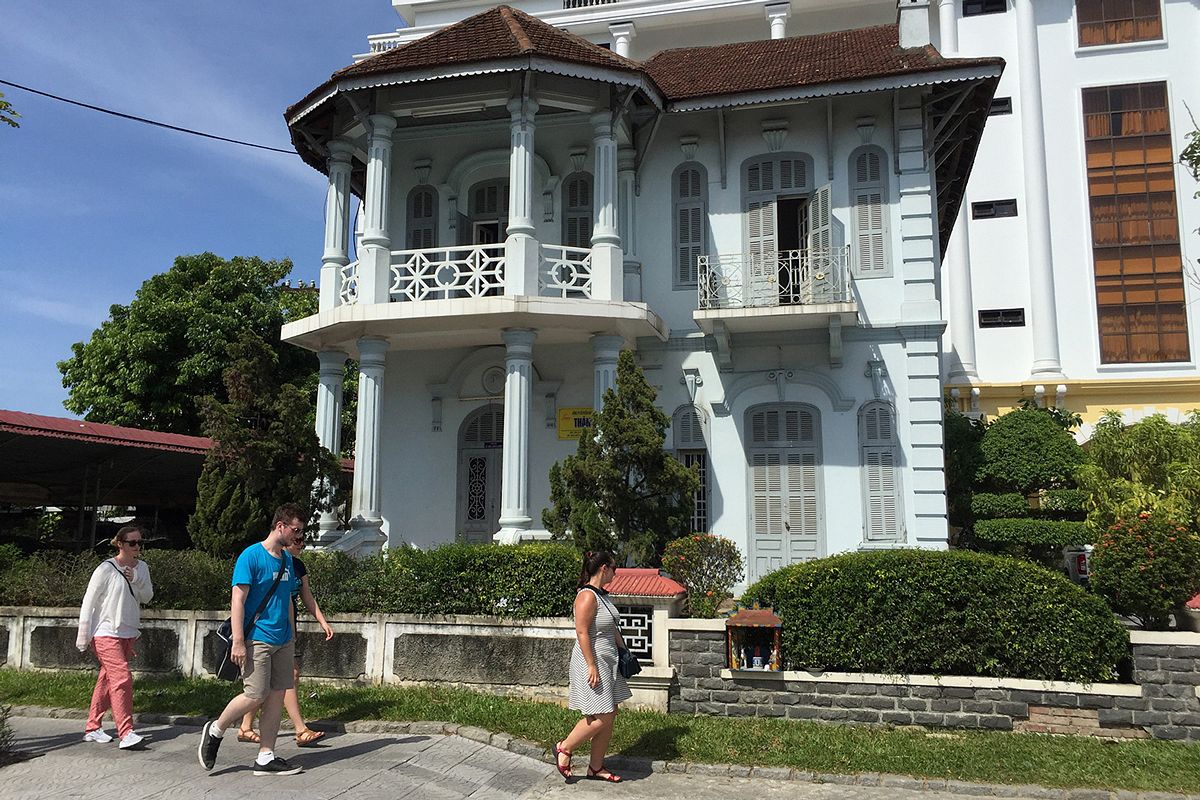In today’s Saigon, Ben Thanh Market’s eastern and western entrances are joined by Phan Chu Trinh and Phan Boi Chau Streets, respectively. While the two short, cozy roads never intersect, the fate of their namesakes were markedly intertwined as two progressive revolutionists whose legacy has vastly influenced Vietnamese history.
The older man, Phan Boi Chau, was born in 1867 in Dan Nhiem Village in Nghe An province. Five years later, in 1872, Phan Chu Trinh was born in Quang Nam province.
Chau is well-known as one of Vietnam’s most passionate nationalists who was both level-headed and academically inclined. Therefore, when he started the Dong Du movement in the late 1880s, Chau was the obvious representative for the insurgency, as his natural charisma could attract many other like-minded individuals to further the common cause.
Despite both being important figureheads of the movement, Phan Chu Trinh was exposed to international affairs at a younger age. This was one of the biggest differences between Trinh and Chau’s modus operandi: Phan Boi Chau was fixated on taking back control of the country from the French via military means, while Phan Chu Trinh preferred to do it via education and diplomacy.
The Dong Du movement eventually fizzled out after Chau paid a visit to Japan and had a chance to meet local political leaders. Dong Du literally translates to “travel eastward”, a promotional campaign encouraging Vietnamese students to learn how to build a successful country from the Japanese government. Initially, Chau traveled to Japan in the early 1900s in hopes of seeking assistance from the nation's military might.
Because of their differing life philosophies, Chau and Trinh butt heads many times during their years of friendship, although they did maintain a sense of mutual respect for each other. Phan Chu Trinh realized early that an aggressive stance might not be able to achieve the desired result without well-informed and well-educated participants operating under an orderly management. Therefore, throughout his legacy, Trinh always stuck to one main goal: to enlighten the people by educating them about world politics and ideologies.
The main reason leading to Phan Boi Chau’s decision to launch the Dong Du movement was because he thought, with Japan and Vietnam as neighbors on the same continent, the two nations might share the same train of thought. But Chau couldn’t be more wrong: by the beginning of the 20th century, Japan was just as hungry to colonize as France, a fact evidenced by its involvement in the first Sino-Japanese War in 1894 over Korea.
Because of his aggressive stance and resistance, Phan Boi Chau became one of the French’s top enemies. On a trip to Shanghai in 1925, Chau was abducted by French agents and transported back to Hanoi.
Chau also wrote about how he was tricked and kidnapped:
"At 12 noon on the eleventh day of the Fifth Month, my train from Hangchow arrived at the North Station Shanghai. In order to go quickly to the bank to send the money, I left my luggage at the depository and carried only a small bag with me. As soon as I came out of the train station, I saw a rather luxurious automobile and four Westerners standing by it. I did not realize that they were French, because in Shanghai there was a great mixture of Westerners and there were swarms of foreign visitors. It was quite common for cars to be used to pick up hotel guests. Little did I know that this car was there to kidnap someone! When I had gone a few steps from the station, one of the Westerners came up to me and said in Mandarin: 'This car is very nice; please get in.' I politely refused, saying 'I do not need a car.' Suddenly, one of the Westerners behind the car with a great heave pushed me inside it, the engine accelerated and we were off like a shot. In no time we had already entered the French Concession. The car drew up to the waterfront, where a French warship was docked. I now became a prisoner on this warship."
Chau was confined in Hanoi’s Hoa Lo prison, and was convicted by the French court and sentenced to a life of servitude. However, due to intense public protests from the local intelligentsia, he was released later in 1925 and instead spent the rest of his life under house arrest.
Phan Chu Trinh stayed in Vietnam while Chau was living in Japan in the early 1900s. He opened a modern school for local students called Dong Kinh Nghia Thuc (Tonkin Free School). The institution offered a progressive curriculum that both criticized French brutality and promoted western ideologies.
After a revolt in 1908, Trinh was captured and his school was closed down. He was sentenced to death, but once again saved by progressive French admirers whose influence reduced his punishment to imprisonment on Con Dao Island. After three years Trinh was pardoned and deported to France under house arrest.
He eventually returned to Saigon in 1925, and just one year after Phan Boi Chau was arrested, Phan Chu Trinh passed away on March 24, 1926, aged 53.
Phan Boi Chau spent the rest of his life at home in Hue and eventually died in 1940.
















